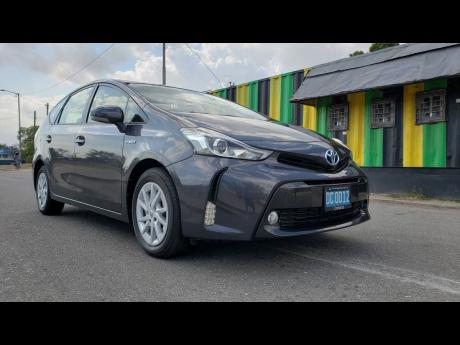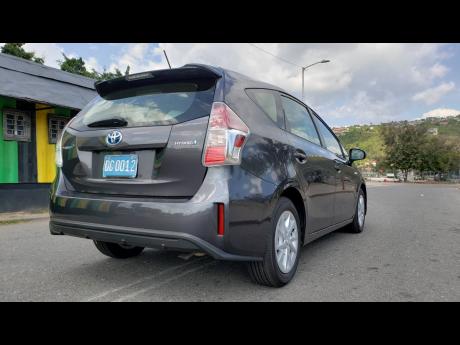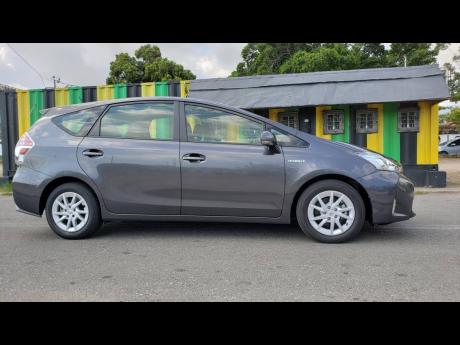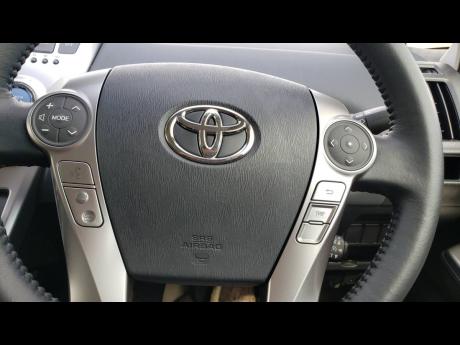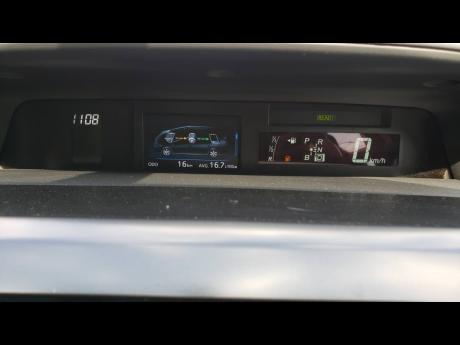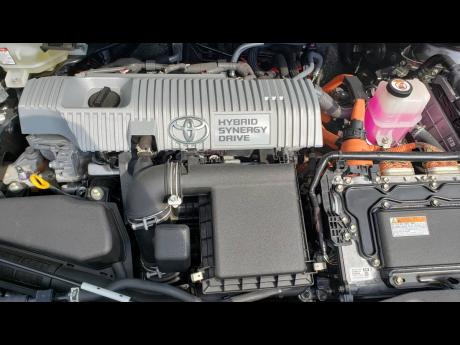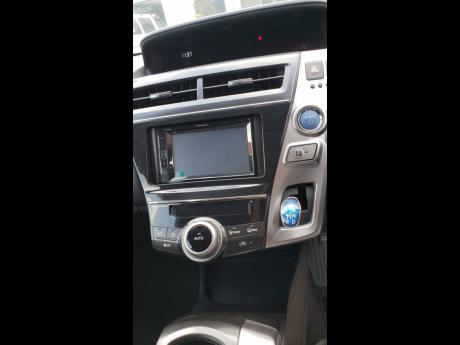Toyota adds space with Prius Plus
Toyota was ahead of the curve when it launched the Prius in 1997 to a market that was still new to the concept of a hybrid car. Now, the Prius is recognisable around the world, and the company has advanced knowledge of how a hybrid system should work.
Toyota’s new addition to the brand is the Prius plus, a Multi-Purpose Vehicle (MPV) variant, which looks like an elongated Prius similar to the concept of a Honda Fit Shuttle. Dubbed a ‘people carrier’, it fits seven persons, with a foldable third-row seat, and is 155mm longer, 30mm wider, and 85mm taller than the regular Pruis.
What is on the inside
The interior uses a combination of chrome and piano-black finishes, with soft-touch leather covering some of the key areas. You can tell that Toyota is trying to make it as user friendly as possible by putting all the relevant information at easy-to-reach points. For example, the steering wheel has easy access to the media and phone options. In addition, there is a back button to control information on the display cluster.
Where the dial cluster is concerned, it is located at the centre of the dashboard, which I am not necessarily a fan of, but this concept seems to be prominent in many Toyotas. The time is in a designated area, while the car information, such as the trip metre, is in the centre screen, and to the farthest right is the gas metre and gear selection.
The centre console is laid out in a very intuitive manner, with the ignition button painted in blue, and below it, is the park button. An interesting take on the gear selection is a cute blue lever that is extremely small and easy to manoeuvre. The temperature gauge is also a nice addition as there is a rotary knob that can be pushed in multiple directions to control the temperature, fan speed, and direction of airflow.
I give Toyota credit for still utilising certain convenient features such as the cup holder, which, when projected from the dashboard, is in front of the AC vent, and this helps with keeping drinks cool. There are also two glove boxes, something I noticed in Hilux pickups of the past.
Unfortunately, there are no rear AC vents, and I noticed that this was the same as the Toyota Wish as well. The second row of seats can be reclined, and the fabric on the seats feels comfortable, along with the side bolsters. which ensure that your upper body does not move around. The third row of seats has designated cup holders on each side, and once they are folded down, there is a retractable partition that can be used when you want to conceal luggage. Unfortunately, it does not come with a spare tire, which is a current trend that I don’t like with manufacturers.
There is a high-transmission tunnel, which creates a divide between driver and front passenger, however, it does not extend to the second row of seats, therefore, there is ample room for three persons to sit comfortably.
Driving around
The ride feels very compliable as the steering is responsive and it goes over bumps and potholes in a manner that doesn’t disrupt the driving experience. All-round visibility is also good with the exception of the chunky ‘c’ pillar, and there is a back-up camera to pick up anything that is immediately behind the vehicle. To help with driver comfort and convenience, the steering wheel can be adjusted for tilt and reach, and to my surprise, there is a traditional foot brake located to the left of the brake pedal.
Even though it is a hybrid, Toyota tries its best not to take the fun out of driving by adding the option of selecting EV, Eco, or Power mode. Each gives a very different driving experiences, which helps the driver to feel as though the vehicle is still functioning like a traditional car.
Price of tested model: $6.9m
Engine:1800 cc
Power: 134bhp (combined)
Transmission: CVT, FWD
Body Type: Wagon, MPV
Review courtesy of Carland, (876) 929-6784, (876) 929-1433, sales@carland-jamaica.com.

